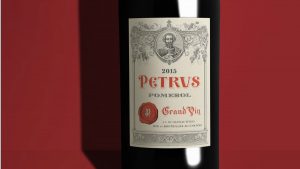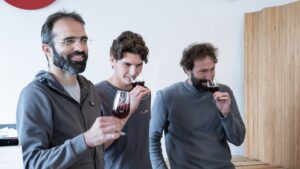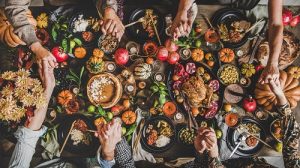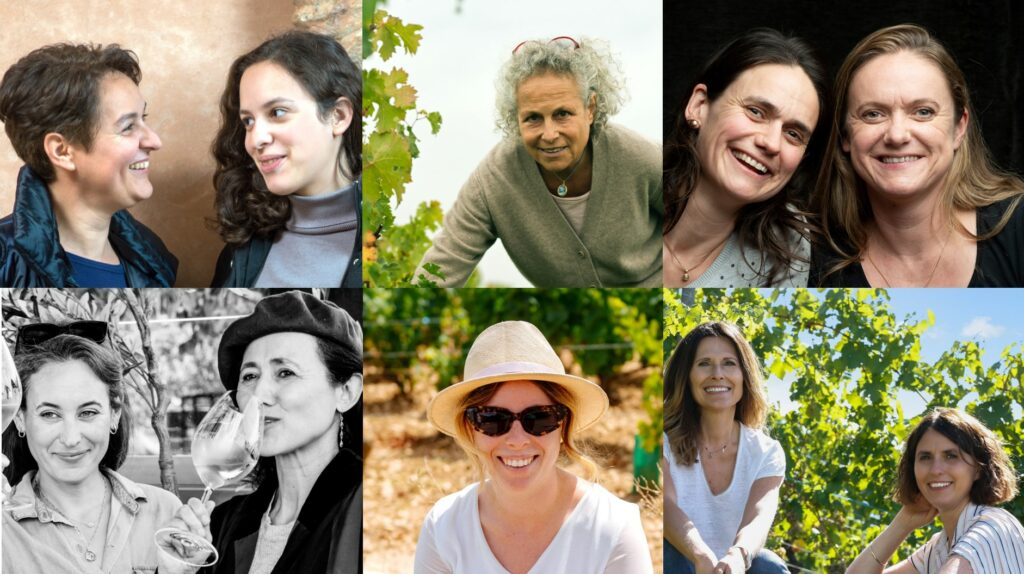
In celebration of International Women’s Day, iDealwine is honouring women winemakers with a special selection on its website, bringing together their superb wine. To accompany this amazing range, we called 7 women who do outstanding work in the world of wine and asked them two simple questions.
Who are they? Winemakers, owners, managers, cellar masters…
– Claire Villars Lurton (Bordeaux),
– Céline Josmeyer (Alsace),
– Anne Gros (Bourgogne – Languedoc),
– Clémentine Gruère du domaine Dubreuil-Fontaine (Burgundy),
– Laura Catena (Argentina),
– Elisabeth et Marie-Laurence Saladin (the Rhône Valley)
1. Claire Villars Lurton, Winemaker of the Year 2024 (La Revue du Vin de France)
Owner at Château Haut-Bages Libéral, Château Ferrière and Domaine Acaibo
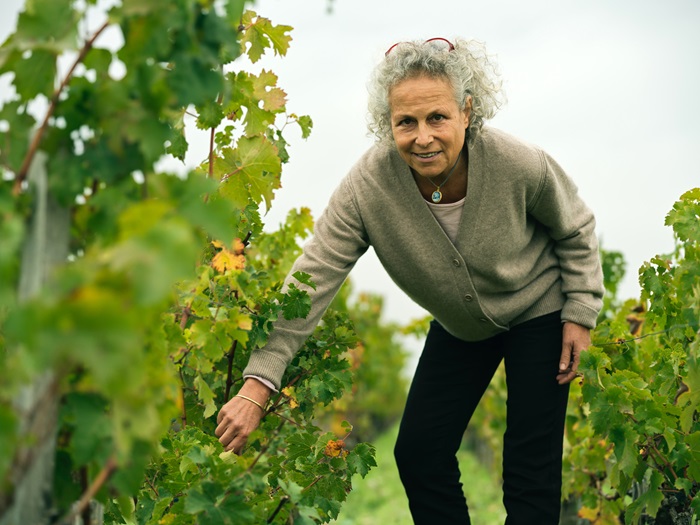
How did you get to where you are today in the wine industry?
I had the misfortune to lose my parents at a young age, when I was 24. I was studying chemistry and quantum physics at the time. So my uncle Jean Merlaut managed the vineyards until 2000. When I turned 32, I came back and found myself in charge of two Grands Crus Classés, Haut-Bages Libéral and Ferrière. My studies in biology led me to take an interest in viticultural practices and plant cover. We were among the first in Pauillac to go biodynamic, along with a small group of pioneers, including François Despagne. I have made a lot of mistakes in my career and lost a lot of money, but I was and still am the only shareholder, which makes things a lot simpler! It was only in 2015-2016 that we managed to regain balance in the vineyard and get a good yield from our now healthy vines, with their ultra-vibrant soils. Today, the quality of the wines is showing. I’m proud to have won French wine magazine RVF’s Winemaker of the Year award, firstly for the Bordeaux regions, which hasn’t won this prize for a long time, secondly for the winegrowers who work organically or biodynamically, and thirdly for my team, who are behind me, believe in me and are full of creativity and inspiration, which is what keeps me going today. We have a lot of fun, we try out fun things and we’re always on the move.
How do you feel about being a female winemaker, a “vigneronne”?
I’ve been using the term ‘vigneronne‘ for a long time, but it’s less common in Bordeaux, where we talk mainly about the owners of châteaux, and not so much about the people who make the wine. I like this terminology. When I started out in the wine world, I considered that I was lucky to be a woman, because there were too few of us and that made me stand out, but also an owner, because that gave me credibility straight away. I think I bring a lot of typically female characteristics to the table: being able to defuse certain situations, being a little gentler, and finally, the work ethic.
2. Anne Gros, owner at Domaine Anne Gros
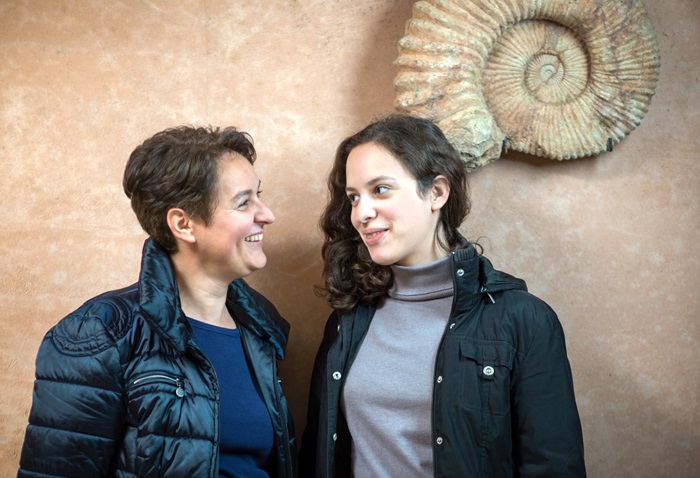
How did you get to where you are today in the wine industry?
“I was an only child when I took over the family’s 3-hectare estate in 1988. From the 1990 vintage onwards, we bottled all our wines at the estate to sell them. Today, the estate covers 8 hectares and has been extended by the takeover of some family vineyards and purchases, notably 39 ares of Vosne-Romanée in 1988. I started alone, then with one employee, then two, then eight today on the two estates in Burgundy and Languedoc. As far as my studies were concerned, I did a BPA in viticulture and oenology, then a Diplôme de Technicien en Œnologie, then a Brevet Professionnel Agricole in commerce, all while working on the estate. With my partner, Jean Paul Tollot, we set up our estate in the Minervois in 2006, with the first vintage coming out in 2008. Our daughter Julie joined me in 2013, and son Paul in 2018.
How do you feel about being a female winemaker, a “vigneronne”?
“I’d say I’m as much a winemaker as I am a mother. I’m a bit less of a woman, though. You’ll see me all the time with my shoes full of earth and often with a hat screwed on my head in the cellar.”
3. Céline Josmeyer, manages the family estate and the vineyard
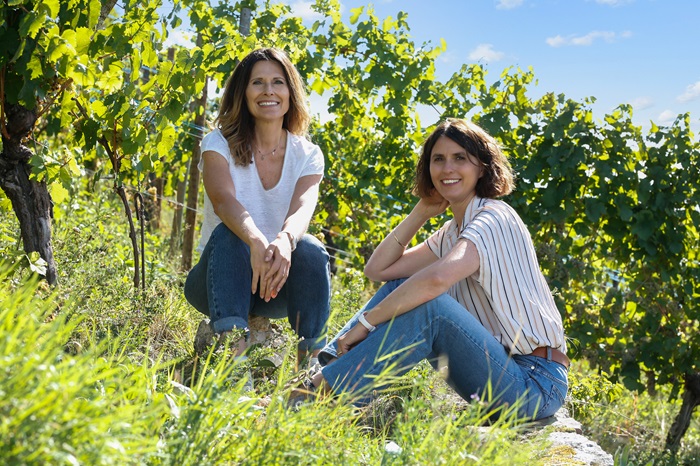
How did you get to where you are today in the wine industry?
“I didn’t study oenology but did a master’s degree in art history and a degree in the publishing industry. I’m the youngest of three daughters, so I wasn’t destined to take over the family estate. I’m happy to have completed studies that I was so passionate about, and I finally returned to the estate when I was 25, taking a BPREA certificate in viticulture to bring myself up to date in just one year. My second sister was working on the winemaking side of the estate at the time, and my father was teasing me a bit, saying that he needed men around him to do the work on the estate. I told him straight away that I could do this ‘male’ job in his mind, that I was capable of it. Since then, I’ve been running the estate and the vineyards, and Isabelle still looks after the cellar.
How do you feel about being a female winemaker, a “vigneronne”?
“It inspires courage. It’s not an easy job, in fact it’s made up of several jobs in one: the vineyard, the cellar, sales, management, communication… Today’s unpredictable weather conditions require even more courage, but also a certain self-sacrifice, the ability to remain humble and to learn to bounce back. My sister and I both have an artistic flair – she wanted to study Fine Art – so we put this sensitivity to work in our wines. Your question makes me think of René Char’s poem, ‘L’air était maternel. Les racines croissaient.’ I believe that women and vines are made to nurture each other.
4. Clémentine Guère, manager of marketing and exports at the family estate Dubreuil-Fontaine
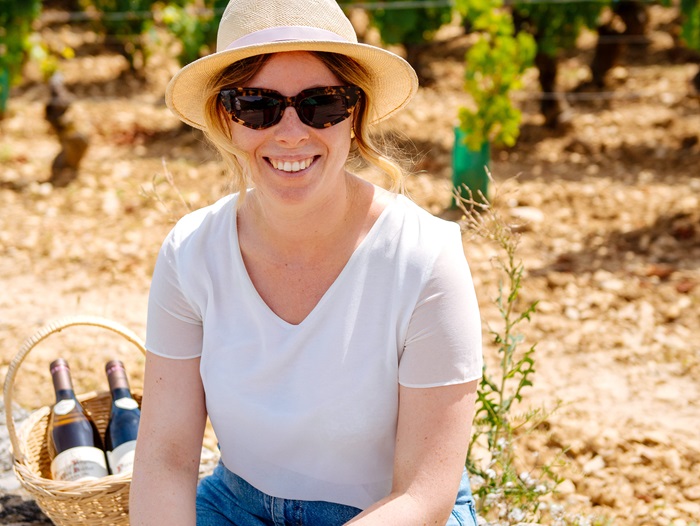
How did you get to where you are today in the wine industry?
“After my economic and social baccalaureate, I completed a Grand Ecole masters at the IÉSEG School of Management, making sure that I covered topics relevant to every stage of the wine making process from the technical side in the vineyards and cellar to the commercial side including marketing and importing. I spent some time working in the cellars of Château de Meursault before coming back to the family estate to develop the commercial and export side of the business.”
How do you feel about being a female winemaker, a “vigneronne”?
“The number of women winemakers is continuously growing and it’s gratifying. I was lucky enough to have a super role model growing up – my mum – who showed my sister and I that it was entirely possible to do this job and that it wasn’t a world just reserved for men. Clémentine and her sister Christine Gruère are part of the Femmes et Vins de Bourgogne association (Women and Burgundy Wine association).
5. Laura Catena, director at Catena Zapata and founder of Catena Institute of Wine
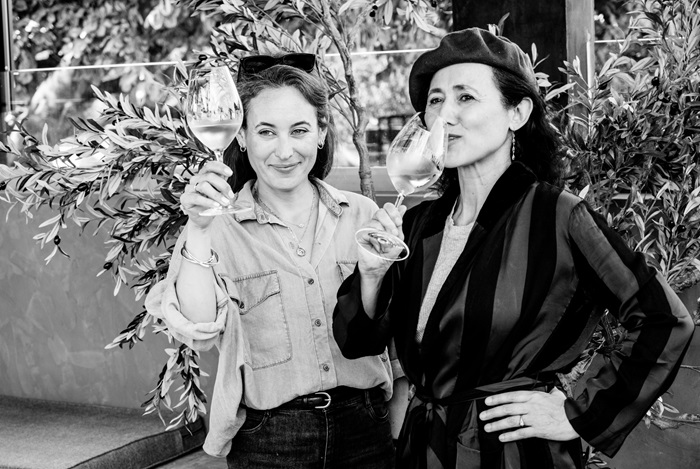
How did you get to where you are today in the wine industry?
“I studied medicine. I wanted to help men and women and wine was my father’s business. It didn’t help anyone, so it was a not for me. While the families of my friends were happy they were studying medicine, my father was disappointed. My mother confided in me that he had hoped I would work with him. A wise man, he took me to France for some tastings with the pretext that I could help him because I speak French and I fell in love with wine on that trip. From that time on, wine became a passion for me, and I spent all my money on enjoying it, never on fashion or clothes! But there were still a few steps to take as I was not yet working in the world of wine. A second trip, this time to the USA, because I speak English as well made me realise that my father really wished I’d helped him. And then I realised that wine has been a part of my family since they lived in Italy in 1800 and my great-grand father Nicolás Catena Zapata and my father did everything to help Argentina get a place on the global scene. I liked the challenge and at 28 years old, I decided to work with him, while remaining as an emergency doctor, a profession I have practised for 28 years. I created the Catena Institute, because the topic fascinated me and my biology background – a subject we studied when we started medicine at Harvard – helped me a lot. When my father was 80 in 2019, I dedicated myself completely to the estate which I had been managing since 2012. I’ve come to realise that I used to look after people, but now I take care of plants, and I put just as much care and commitment into them. I wanted to study viticulture because I love the academic side of things, but in the end, I learnt on the job – with my work as an emergency doctor and my children, it was complicated – with help from my teams. Tasting is the most difficult part for me as it requires a lot of time and investment.”
What does being a woman and a female winemaker mean to you?
The words that come to mind are: family, nature, culture and enjoyment. I sometimes link women to care, to ‘taking care of things’, and that’s what I’m doing in the vines today. The vine, like a child, can catch illnesses and viruses, so you have to take care of it as you would a child. And for me, wine is an entirely feminine pleasure. I manage a lot of things in my life, my family, the vineyards, the Institute, and when I want to take a moment to myself, to relax, refocus and thus better embody the woman I am, I pour myself a little glass of wine.
I also work with my sister on the estate and it’s great to have this female collaboration. She’s more of a perfectionist than I am, quite critical in the sense that she questions things, but we love working together and she pushes me with all the love she gives.
6. and 7. Marie-Laurence and Elisabeth Saladin, winemakers at the family estate in Ardèche
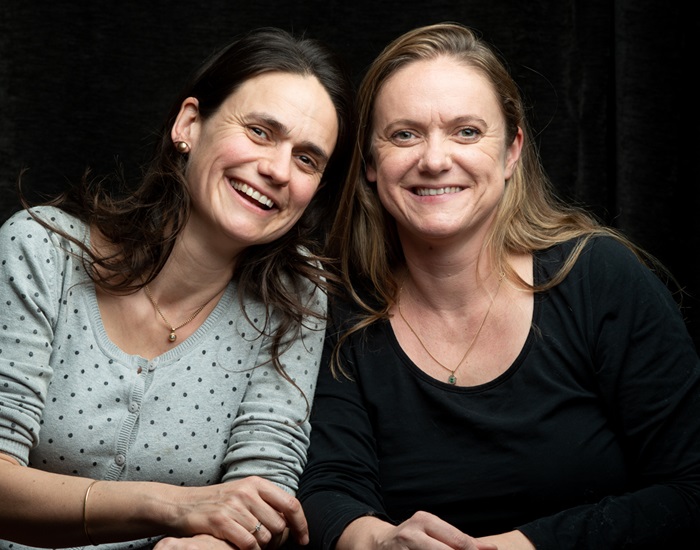
How did you get to where you are today in the wine industry?
“With Elizabeth, my sister, our path into the wine world was a combination of circumstances and love at first sight.
During the 2003 harvest, our father Louis had a health problem, caused by our pebbly terroirs which prevented him from harvesting, climbing ladders and making wine. In the space of one harvest, we both found ourselves replacing his legs, his eyes and his nose! He guided us from his armchair with the wisdom of his 72 years on the Earth. We were girls who were told, “Leave that, it’s not for you” or “ you will hurt yourself” but this experience was a wonderful immersion in our family’s winegrowing history (the archives go back to 1422 with a deed showing vines purchased in Saint-Marcel d’Ardèche in the Côtes du Rhône) with organic practices being used from the very beginning, both in the vineyards and in the cellar.
We both fell head over heels in love – the scents, the colours, the cellar’s ambiance, the vines… The magic of the harvest worked. It was a wonderful occasion to be guided by other father and to be in the driving seat at the same time. We used to dream about it at night.
Elisabeth was a student at a business school in Lyon, while I studied at an engineering school in the city. In July 2004, the day after I defended my thesis in front of Bernadette, Marcel and Philippe Guigal, winemakers and traders extraordinaire, I came back to the estate. Elizabeth joined me in 2005 after finishing her studies at InterRhône, the joint trade organisation for Côtes du Rhône.”
What does being a female winemaker, a “vigneronne”, evoke in you?
“It makes us think of our talents, our grandmothers and our great-grandmothers, our colleagues, our friends, our neighbours, the Femmes Vignes Rhône on a regional level and the Femmes de Vin on a national level, those who inherited estates and the new arrivals. Committed, active, passionate, courageous women. Women you can depend on.
We are also inspired by the vision of being head of a company and creating a profession for future generations of women – a profession that mixes nature, the environment, creativity, scents… Being involved however long or short both in the local area and for the wider society. A profession where women can fully – and happily – combine their lives as a working individual and mothers however they wish. And we think that would be a huge step forward!”

